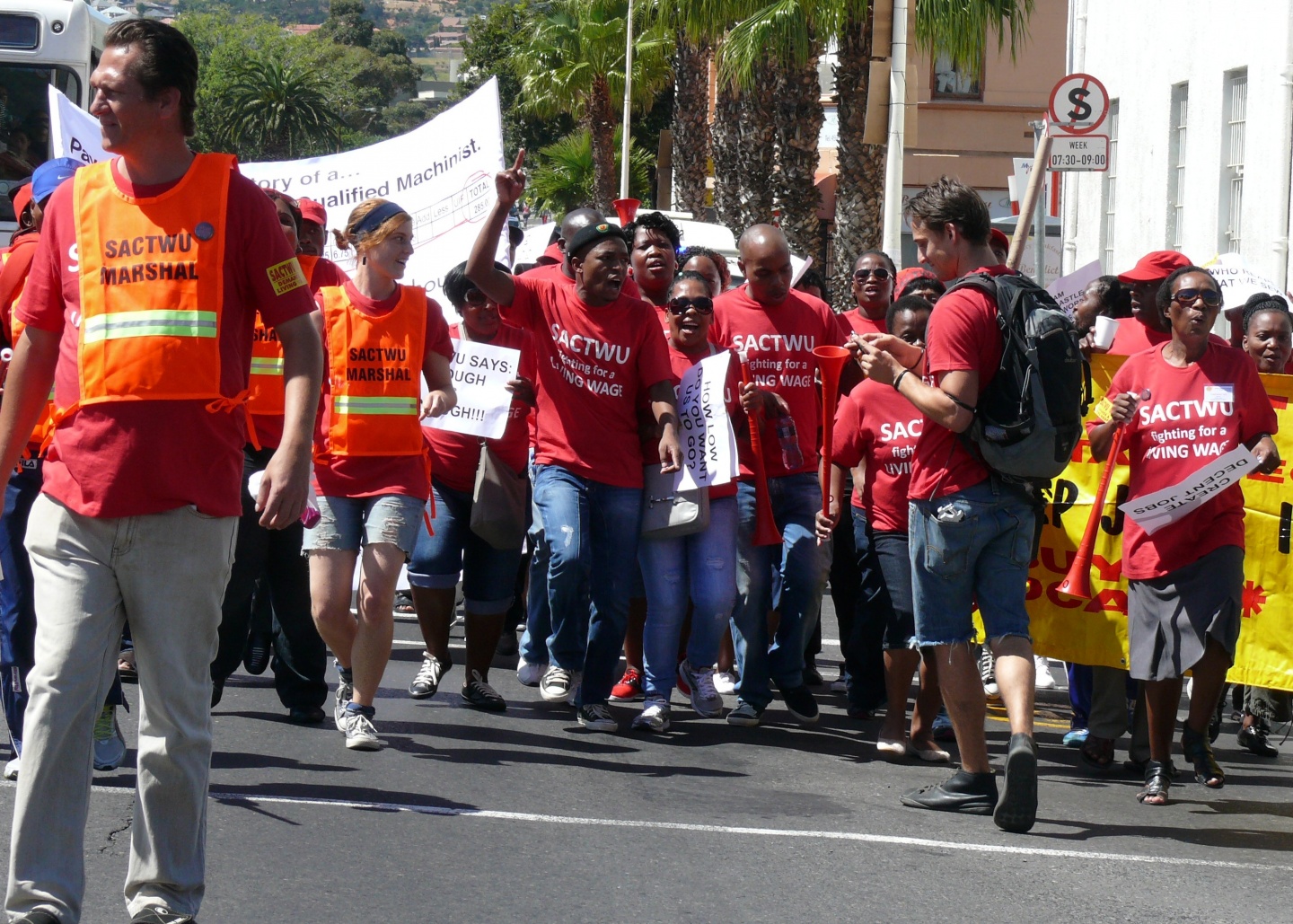7 March, 2013The Southern African Clothing and Textile Worker Union (SACTWU) put together national sectoral demands and an aggressive programme of action based on the 16,000 living wage demands collected from its members.
The living wage demands were consolidated at the SACTWU Annual National Bargaining Conference from 28 February to 3 March in preparation for the 2013 round of substantive negotiations.
SACTWU’s President, Themba Khumalo opened the Conference by reminding delegates that workers join unions for particularly one main reason: to improve their lives, the lives of their families and that of the communities from which they come. He reminded the 200 delegates that to realize these aims workers and their leaders need to be united and militant.
Delegates supported the government’s view that the clothing textiles and footwear industries had stabilised after 15 years of decline in employment in the sector. Delegates appreciated the acknowledgement of this by South African President Zuma in his recent State of the Nation address, where he also mentioned the governments clothing support scheme that has helped to prevent closures and saved many jobs.
The conference convened specialist commissions to develop concrete support for the Living Wage Campaign and to seek ways to address challenges faced by the union and members in the current political environment as well as those in the sector. Delegates also re-affirmed commitment to strengthen the union and centralised bargaining and provide solidarity support for other COSATU affiliates’ living wage, recruitment and organizing campaigns.
A day of action was held on 1st March, with three protest marches, one to the South African Revenue Services to protest against the continued flow of illegal imports into South Africa, which undermines local jobs and leads to de-industrialisation.
The other two marches were directed at Capitec Bank and the University of Cape Town’s Centre for Social Science Research (CSSR). These were organised to protest against the involvement of Capitec’s chairperson, Michiel le Roux, in financing efforts to attack workers’ basic rights. This includes funding the campaign by Newcastle sweatshops to stop vulnerable workers being covered by minimum wages, for which CSSR produced what the union calls, “blatant propaganda and employer agenda-driven research.”
SACTWU delegates challenged the main architects of the report to live off the illegally low wages which they are prescribing for Newcastle workers. “In this regard, we handed them R278 [USD32] in cash, which is the typical take-home wage which many Newcastle qualified machinists’ earn for a 45 hour week.”
See a previous report here: http://www.industriall-union.org/south-african-union-slams-minimum-wage-compliance-criticism


